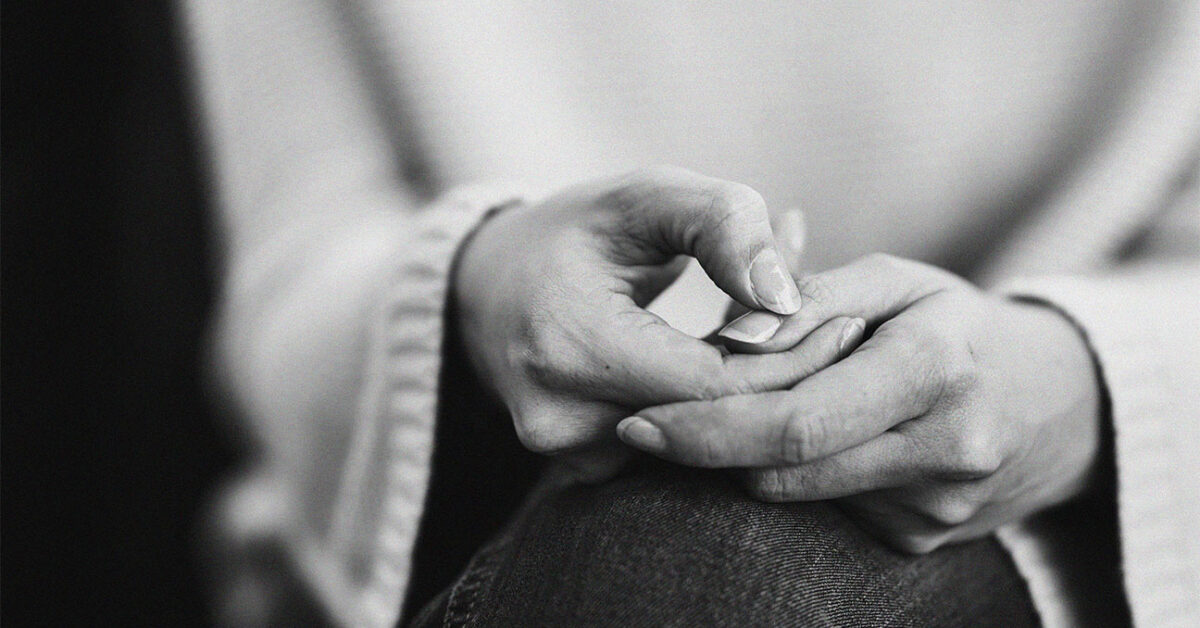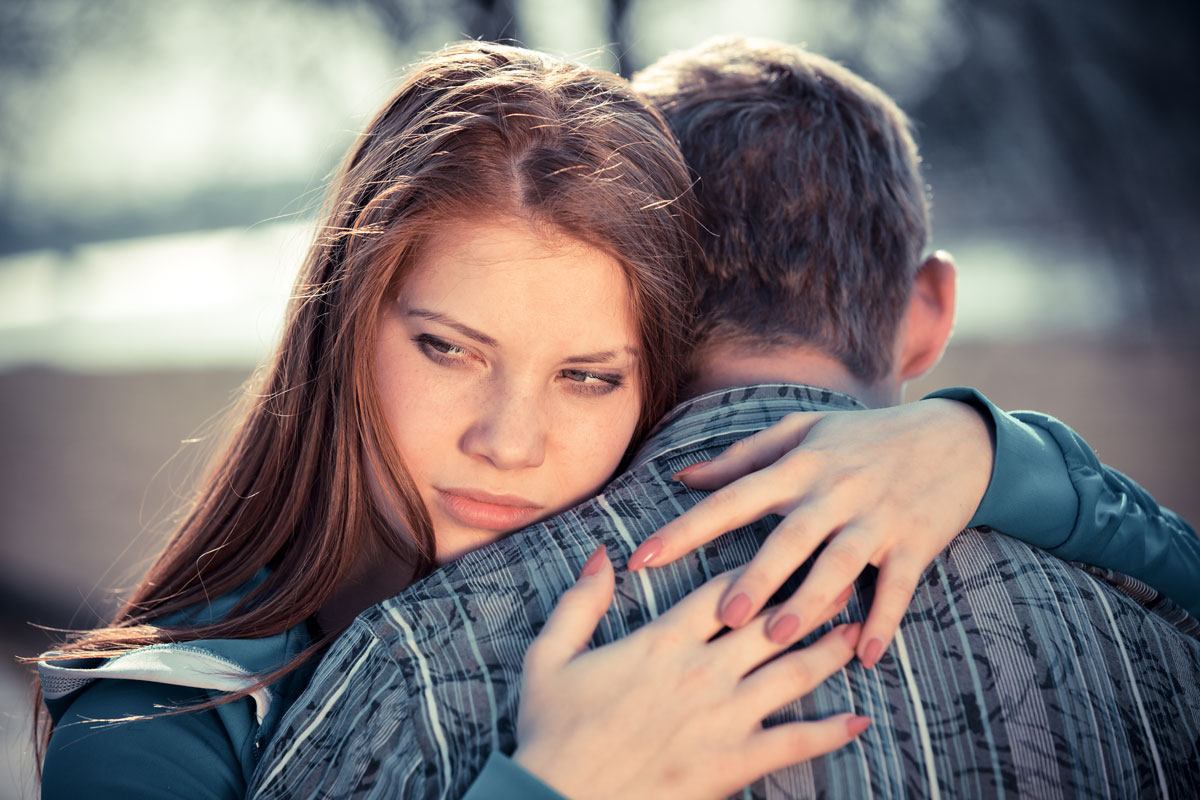A trauma bond is an unhealthy emotional connection between two people where one person inflicts pain on the other. Then they offer comfort when that pain is expressed. This type of relationship can occur in many relationships- including close friends, spouses, or romantic couples. The cycle usually starts with tension building up until there’s a confrontation which leads to relief from the tension. Then the cycle starts over again.
The following blog post discusses what causes this pattern to form. This blog will also discuss how to break it so it doesn’t happen anymore in your life!
Contents
What Is Trauma Bond?
 Trauma bond is a strong emotional connection between two individuals where one person experiences physiological or psychological pain when that other person experiences danger. It can be formed in an instant, under the influence of adrenaline, and it’s much more powerful than you might think. The effects are long-lasting too – they don’t just automatically go away when the danger has passed. They need to be treated similarly to PTSD symptoms so that your body does not continue to respond as though there is still an emergency going on.
Trauma bond is a strong emotional connection between two individuals where one person experiences physiological or psychological pain when that other person experiences danger. It can be formed in an instant, under the influence of adrenaline, and it’s much more powerful than you might think. The effects are long-lasting too – they don’t just automatically go away when the danger has passed. They need to be treated similarly to PTSD symptoms so that your body does not continue to respond as though there is still an emergency going on.
This bond is incredibly strong and can be difficult to break. It’s one of the reasons why victims of abuse often stay in those relationships long after they should have left. They become so bonded to their abuser that they are afraid of what will happen if they leave.
The good news is that there is help available. There are therapists who specialize in working with trauma bonds, and they can help you understand how this bond formed and how to break it. With time and patience, you can heal the wounds that have been caused by this attachment and move on with your life.
Signs of Trauma Bond
There are some signs of a trauma bond that you can watch for. If you notice that you:
Feelings of Danger
 The key to understanding the trauma bond is recognizing the feeling of danger. This can be a physical sensation, like a racing heart or sweaty palms, but it can also be an emotional response. You may feel anxious or scared around your abuser, even when there is no obvious danger present.
The key to understanding the trauma bond is recognizing the feeling of danger. This can be a physical sensation, like a racing heart or sweaty palms, but it can also be an emotional response. You may feel anxious or scared around your abuser, even when there is no obvious danger present.
Feelings of Intimacy
Another hallmark of a trauma bond is feelings of intimacy. Victims often report feeling incredibly close to their abuser and being intensely attracted to them. They may feel like they are the only person who understands them or that they are the only one who makes them feel alive.
Sense of Helplessness
 One of the most damaging aspects of a trauma bond is the sense of helplessness that it creates. Victims come to feel like they are unable to escape the situation, no matter how hard they try. This can lead to feelings of despair and hopelessness.
One of the most damaging aspects of a trauma bond is the sense of helplessness that it creates. Victims come to feel like they are unable to escape the situation, no matter how hard they try. This can lead to feelings of despair and hopelessness.
Feelings of Trust
Another sign of a trauma bond is feelings of trust. Victims may automatically assume that their partner has good intentions and not question the way they treat them. They can become very insistent on defending these partners to other people, even when they’re in dangerous situations themselves.
Feelings of Distress
 Another sign of trauma bond is feelings of distress. Victims will often report feeling physically sick when their abuser is in danger. It is also when they are trying to leave the relationship. They may experience panic attacks and other symptoms that make it difficult to function in day-to-day life.
Another sign of trauma bond is feelings of distress. Victims will often report feeling physically sick when their abuser is in danger. It is also when they are trying to leave the relationship. They may experience panic attacks and other symptoms that make it difficult to function in day-to-day life.
Emotional And Physical Abuse
The most common sign of a trauma bond is emotional and physical abuse. Victims will often remain in relationships where they are constantly berated, belittled, and assaulted both physically and emotionally. This abuse can be incredibly damaging and may even lead to death.
Causes of Trauma Bond
There are some causes of a trauma bond. They include:
Adrenaline
 One of the most common causes is adrenaline, which can be released when you are in danger or during sexual situations. It has a powerful bonding effect that encourages people to stay together for longer periods of time.
One of the most common causes is adrenaline, which can be released when you are in danger or during sexual situations. It has a powerful bonding effect that encourages people to stay together for longer periods of time.
Dopamine
 Another reason why they form so quickly and easily is dopamine, which creates feelings of euphoria when it’s released by your brain. You may become addicted to these high-stress conditions and keep coming back for more instead of looking out for yourself. This makes them much harder to break than other types of emotional bonds because there will always be this craving inside you that keeps drawing you back toward abuse despite everything else in your life telling you otherwise.
Another reason why they form so quickly and easily is dopamine, which creates feelings of euphoria when it’s released by your brain. You may become addicted to these high-stress conditions and keep coming back for more instead of looking out for yourself. This makes them much harder to break than other types of emotional bonds because there will always be this craving inside you that keeps drawing you back toward abuse despite everything else in your life telling you otherwise.
Abuse
 Many trauma bonds are formed because of abuse. Victims will create strong emotional attachments to their abusers as a way of coping with the pain that they’re experiencing on a daily basis. This is why it can be so difficult to leave them once you have found yourself in this position; these feelings seem natural and normal given your circumstances, even though they aren’t healthy or advisable long-term.
Many trauma bonds are formed because of abuse. Victims will create strong emotional attachments to their abusers as a way of coping with the pain that they’re experiencing on a daily basis. This is why it can be so difficult to leave them once you have found yourself in this position; these feelings seem natural and normal given your circumstances, even though they aren’t healthy or advisable long-term.
Betrayal
 Another cause of trauma bond is betrayal. When someone betrays our trust, then we are much more likely to stay close out of an attempt at getting revenge for what was done wrong against us instead of moving forward into safer territory where there isn’t any chance that you could become hurt again by them.
Another cause of trauma bond is betrayal. When someone betrays our trust, then we are much more likely to stay close out of an attempt at getting revenge for what was done wrong against us instead of moving forward into safer territory where there isn’t any chance that you could become hurt again by them.
Chronic Stress
 Many trauma bonds form because of chronic stress. Victims can develop a sense of hypervigilance, where they are constantly on the lookout for danger and potential threats in their environment. This makes it much more likely that you will miss warning signs about people who might be dangerous to your safety later down the line or recognize when someone is manipulating you into doing what they want instead of respecting your boundaries.
Many trauma bonds form because of chronic stress. Victims can develop a sense of hypervigilance, where they are constantly on the lookout for danger and potential threats in their environment. This makes it much more likely that you will miss warning signs about people who might be dangerous to your safety later down the line or recognize when someone is manipulating you into doing what they want instead of respecting your boundaries.
Attachment Theory
Trauma bonds are also formed because of attachment theory. This is the idea that you will become emotionally attached to people who either take care of you or show affection toward you in your life, which can develop into strong feelings even when they aren’t healthy for your well-being. Attachment issues are formed during childhood by neglectful parents and other figureheads who have authority over children but don’t fulfill their role properly ensuring that their needs are met as a child grows up. These early experiences form deep-seated beliefs about how relationships work, so it’s easy to fall back on them later down the line without realizing what has happened until it becomes too late and real damage has already been done.
Negative Impacts of Trauma Bond

These are some of the negative impacts of a trauma bond:
Affects Recovery
When you’re in a trauma bond, it can make the recovery process much more difficult and complex than it has to be. It can lead to lifelong struggles with co-dependency issues, self-esteem problems, addiction problems, intimacy issues, PTSD symptoms like flashbacks or nightmares following traumatic events. You might even develop mental health disorders if this goes on for too long without any form of intervention at all.
Gives Emotional Issues
These types of bonds also impact your sense of emotional well-being given that they are often formed during very negative experiences where you were not treated properly by others who should have been there for you when needed most. Victims may experience extreme guilt afterward about their inability to leave abusers despite what they have done to them, which can lead to depression and other mental health struggles.
Affects Trust Issues
You might also find it difficult to trust others after you’ve been abused by someone close because this will make you much more likely to assume that everyone else is out there for themselves as well; even those who claim otherwise. This means that it takes a lot longer for the victim in question to build up their support network around them after transitioning into safer surroundings.
Affects Relationship Dynamics
The trauma bond can also have a negative impact on relationship dynamics. This is even after the abuser is no longer in the picture. Victims often find themselves attracted to unhealthy or abusive partners later in life. This is because they are unconsciously trying to recreate the dynamics of their previous traumatic relationship. This is in hopes that it will end differently this time around. They might also start to withdraw from healthy relationships altogether. It is a way of self-preservation. This can further damage their mental health and well-being in the long run.
How To Cope-Up With Trauma Bond

There are some things you can do to help cope-up with a trauma bond:
Educate Yourself
The first step is to educate yourself about the topic at hand. This will give you a better understanding of what you’re dealing with and why it might be so difficult for you to break free from the abuser’s grip. It will also help you develop a plan for how to move forward in your life once you have recognized that this is an issue that needs to be addressed.
Get Professional Help
If things are really bad and you feel like you can’t do it on your own, then get professional help from a therapist or counselor who specializes in this type of thing. They will be able to provide you with additional support and guidance as you work through the healing process.
Join Support Group
Consider joining a support group for survivors of abuse. This can be an incredibly helpful way to connect with others who are going through something similar and to share your experiences and insights with them. It can also provide you with some much-needed emotional support.
Try Self-Care
Finally, make sure to practice self-care. This means taking care of yourself both physically and emotionally by doing things that make you feel good. This could involve things like exercise, yoga, meditation, journaling, reading, listening to calming music, spending time outdoors, etc. Taking care of yourself in this way will help reduce the stress and trauma associated with the abuse you’ve experienced.
Conclusion
In conclusion, a trauma bond is an extremely powerful and harmful thing. It can cause mental health problems, intimacy issues, trust difficulties, relationship dynamics that are difficult to break free from.
With the right knowledge, you can learn how to cope-up with this type of connection by educating yourself about it first before using professional help as well as joining support groups that have proven effective in helping people heal from such experiences. Make sure to take care of your own physical and emotional needs through self-care activities which will reduce stress levels significantly.
For more information, please contact MantraCare. PTSD or Post-Traumatic Stress Disorder is a mental health condition that affects people who have experienced or witnessed a traumatic event. If you have any queries regarding Online PTSD Counseling experienced therapists at MantraCare can help: Book a trial PTSD therapy session


